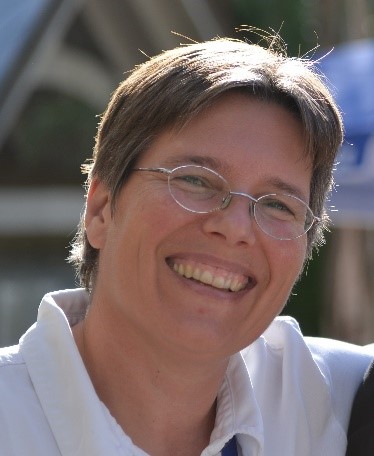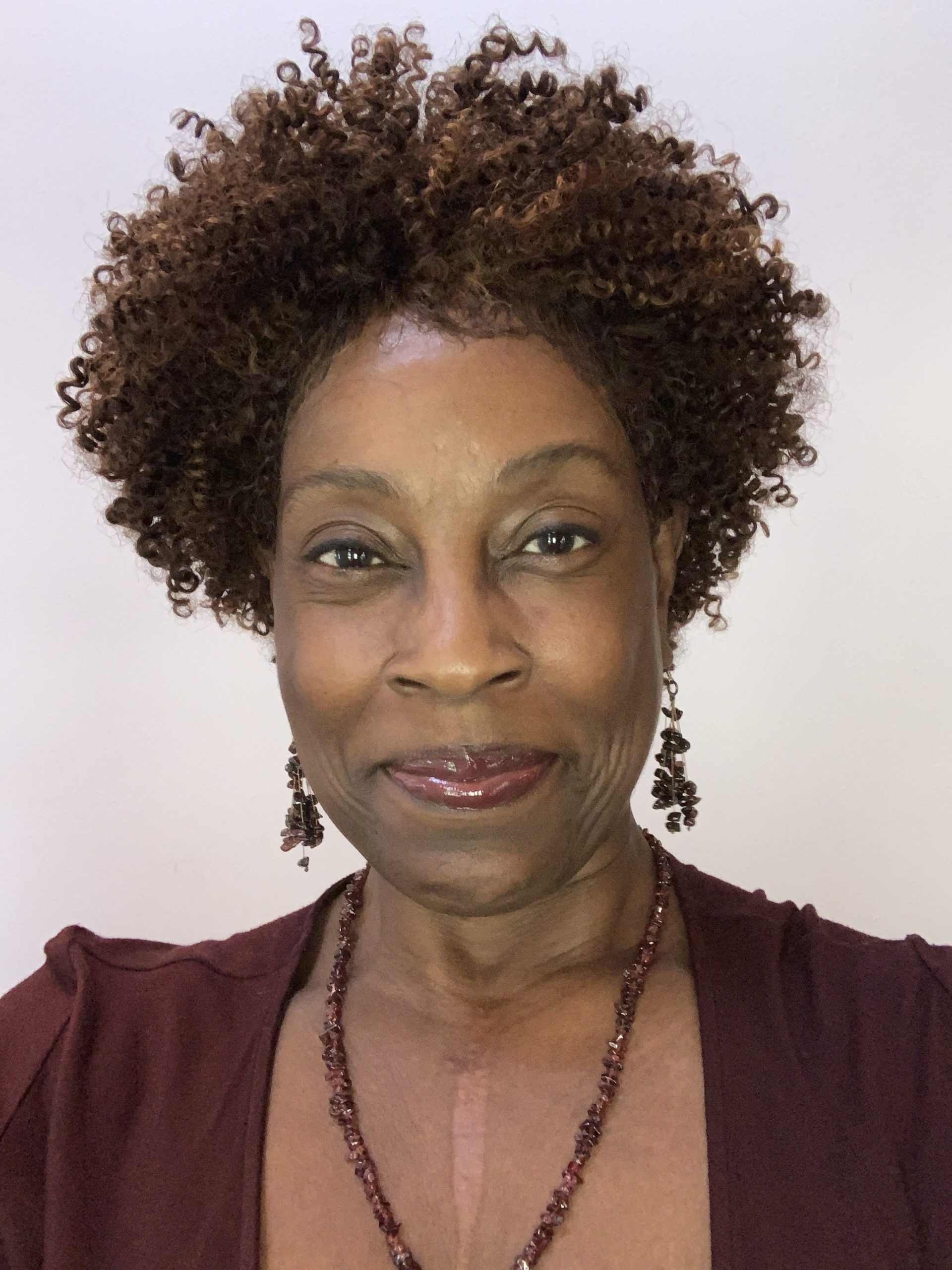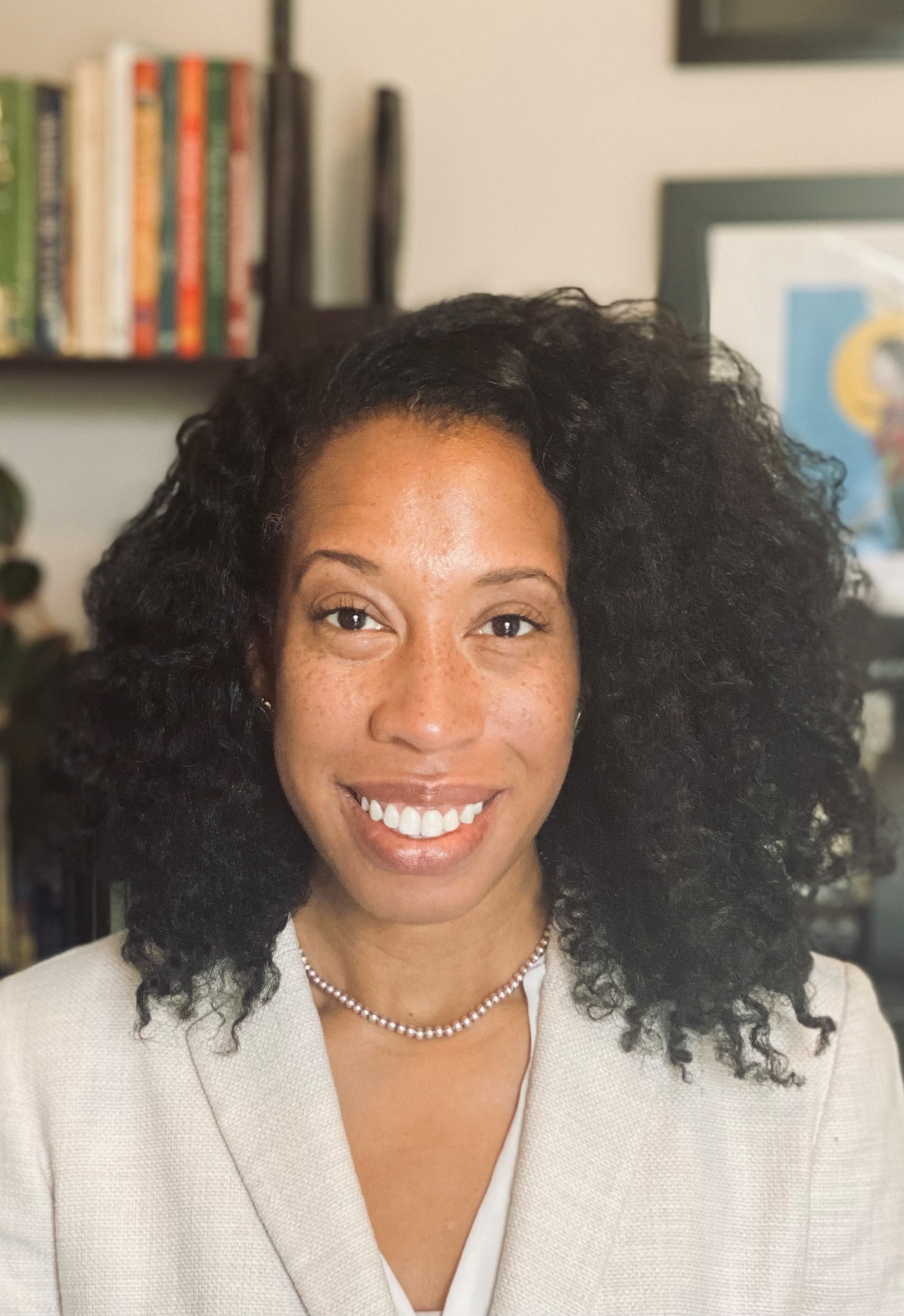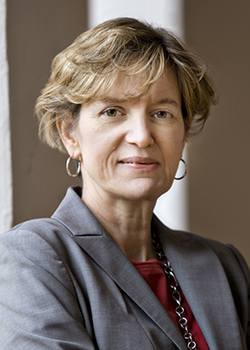 Susanne C. Moser (she/her) is an independent scholar and consultant who works in the US and internationally from a base in western Massachusetts, the unceded ancestral homeland of the Nipmuc and Pocumtuc. A geographer by training (Ph.D. 1997, Clark University), her work focuses on adaptation to climate change, science-policy interactions, climate change communication, and psycho-social resilience in the face of the traumatic and transformative challenges associated with climate change. She has served on scientific advisory boards for Future Earth, the International Science Council, the US National Research Council and contributed to IPCC and US national climate assessments. You can learn more about her at https://www.susannemoser.com.
Susanne C. Moser (she/her) is an independent scholar and consultant who works in the US and internationally from a base in western Massachusetts, the unceded ancestral homeland of the Nipmuc and Pocumtuc. A geographer by training (Ph.D. 1997, Clark University), her work focuses on adaptation to climate change, science-policy interactions, climate change communication, and psycho-social resilience in the face of the traumatic and transformative challenges associated with climate change. She has served on scientific advisory boards for Future Earth, the International Science Council, the US National Research Council and contributed to IPCC and US national climate assessments. You can learn more about her at https://www.susannemoser.com.
 Olivia A. Scriven, PhD, is Federal Disaster Recovery Officer (FDRO) with the Federal Emergency Management Agency (FEMA). As FDRO, Dr. Scriven provides leadership for interagency recovery operations to support the long-term recovery of disaster impacted States, Tribal Nations, Territories, and local communities in the aftermath of a presidentially declared disaster. This work includes engagement with other FEMA programs, Federal agencies, nonprofits, institutions of higher education, and a range of partners on strategies and long-term projects related to Housing, Economics, Infrastructure Systems, Health and Social Services, Education, Natural and Cultural resources, and Community Planning and Capacity Building.
Olivia A. Scriven, PhD, is Federal Disaster Recovery Officer (FDRO) with the Federal Emergency Management Agency (FEMA). As FDRO, Dr. Scriven provides leadership for interagency recovery operations to support the long-term recovery of disaster impacted States, Tribal Nations, Territories, and local communities in the aftermath of a presidentially declared disaster. This work includes engagement with other FEMA programs, Federal agencies, nonprofits, institutions of higher education, and a range of partners on strategies and long-term projects related to Housing, Economics, Infrastructure Systems, Health and Social Services, Education, Natural and Cultural resources, and Community Planning and Capacity Building.
Dr. Scriven began with FEMA in 2016 with Individual Assistance, later transitioning to the Interagency Recovery Coordination (IRC) cadre where she served as Academia Advisor for Hurricane Michael (2018). In that capacity, she linked college and universities with disaster-impacted communities to advance long-term recovery and resilience objectives. This included technical assistance by teams of faculty-mentored students to support housing assessments, water quality studies, timber remediation, and multi-discipline engineering designs for a dual-use resiliency center for special needs and economically under-served communities in Bay County, Florida. A subsequent study, conducted in collaboration with the Coastal Resilience Center at UNC, Chapel Hill, evaluated processes used to integrate colleges and universities in IRC field operations. Recommendations from that year-long study now form the basis for Standard Operating Procedures for the FEMA IRC Academia Advisor specialty and later work by UNC’s Coastal Resilience Center with FEMA to expand work with public, land-grant institutions.
Dr. Scriven holds the earned doctorate in the history and sociology of technology and science from the Georgia Institute of Technology (“Georgia Tech”), and worked alongside the pioneering African American female mathematician, Dr. Etta Zuber Falconer, to help build the modern STEM education and research training program at Spelman College.
Dr. Scriven leverages her background in higher education administration, undergraduate STEM education, and complex project management to build pathways, processes and partnerships in support of field-level disaster recovery and data-informed resilience strategies. She is regularly invited to serve on peer-review panels for the National Science Foundation, and her latest project examines "Hurricane Michael as a Case Study for Integrating Colleges and Universities in Long-Term Disaster Recovery and to Build Resilience.” This work is set to appear in Yoku Shaw Taylor, ed. Immigration, The Borderlands, and Homeland Resilience – A Critical Reader. Landham, MD: Berman Press (forthcoming).
Dr. Scriven is currently deployed to Louisiana leading the final stages of interagency recovery coordination in the aftermath of Hurricane Ida.
 Cassandra R. Davis, Ph.D., is an Assistant Professor in the Department of Public Policy at the University of North Carolina at Chapel Hill. Her research focuses on the environmental disruptions to schooling communities, specifically the impact of natural disasters on low-income communities of color. Dr. Davis’ goal is to support educators, community leaders, and policymakers to improve mitigation strategies, preparedness, response, and recovery in areas with the highest need. Her most recent projects focus on addressing systemic racism and building trust and community between emergency management and socially marginalized populations disrupted by consecutive natural disasters. Since 2020, Dr. Davis has received funding from the United States Department of Homeland Security to examine inequitable distributions of disaster aid to underrepresented communities. From 2017-2020, Dr. Davis received funding from the National Science Foundation to explore the impacts of Hurricanes Florence (2018), Harvey (2017), and Matthew (2016) on schools, educators, and students.
Cassandra R. Davis, Ph.D., is an Assistant Professor in the Department of Public Policy at the University of North Carolina at Chapel Hill. Her research focuses on the environmental disruptions to schooling communities, specifically the impact of natural disasters on low-income communities of color. Dr. Davis’ goal is to support educators, community leaders, and policymakers to improve mitigation strategies, preparedness, response, and recovery in areas with the highest need. Her most recent projects focus on addressing systemic racism and building trust and community between emergency management and socially marginalized populations disrupted by consecutive natural disasters. Since 2020, Dr. Davis has received funding from the United States Department of Homeland Security to examine inequitable distributions of disaster aid to underrepresented communities. From 2017-2020, Dr. Davis received funding from the National Science Foundation to explore the impacts of Hurricanes Florence (2018), Harvey (2017), and Matthew (2016) on schools, educators, and students.
 As an environmental public policy mediator, Tanya's work extends across a broad range of issues that are important for creating resilient communities and a healthy environment in the context of social equity. Her expertise is designing and facilitating community-based research, innovative and robust community engagement, collaborative problem solving, consensus building, and strategic planning. In recent years a primary focus has been initiating and leading projects that will advance both Virginia’s coastal resilience and sustainable food systems. Tanya's portfolio is rounded by work on environmental justice, watershed management, and an initiative to develop guidance to help communities and institutions address deep conflict surrounding race, memorials, and public spaces.
As an environmental public policy mediator, Tanya's work extends across a broad range of issues that are important for creating resilient communities and a healthy environment in the context of social equity. Her expertise is designing and facilitating community-based research, innovative and robust community engagement, collaborative problem solving, consensus building, and strategic planning. In recent years a primary focus has been initiating and leading projects that will advance both Virginia’s coastal resilience and sustainable food systems. Tanya's portfolio is rounded by work on environmental justice, watershed management, and an initiative to develop guidance to help communities and institutions address deep conflict surrounding race, memorials, and public spaces.
In recent years Tanya's teaching has taken the form of designing and conducting training for professionals, ranging from planners and landscape architects to regulators, cultural and natural resources managers, historic preservationists, and transportation specialists. Her trainings provide both theory and hands-on practice in interest-based approaches to negotiation and conflict management, community engagement, process design, facilitation, as well as building self-awareness about styles of conflict management to enhance personal effectiveness.
Elizabeth Andrews is the Director of William & Mary Law School’s Virginia Coastal Policy Center. She formerly served as Senior Assistant Attorney General and Chief of the Environmental Section of the Virginia Office of the Attorney General, where she oversaw a team of attorneys representing and providing counsel to the Secretary of Natural Resources and the natural resources agencies of the Commonwealth. She also served as the Water Policy Manager for the Virginia Department of Environmental Quality, where she worked closely with the legislature, the regulated community and environmental organizations to address the water quality and quantity challenges facing Virginia, particularly its coastal areas.
Professor Andrews is a graduate of the College of William and Mary and received her Juris Doctor degree, summa cum laude, from the Washington College of Law at American University. She serves as the Virginia representative on the Chesapeake Bay Program’s Climate Resiliency Workgroup, as a member of the Virginia Land Conservation Foundation Board of Trustees, and as a member of the Board of Governors of the Virginia State Bar’s Environmental Law Section. She also was elected to membership as a Fellow in the American College of Environmental Lawyers. In 2020, she was appointed by Governor Northam to the Technical Advisory Committee charged with developing Virginia’s first Coastal Resilience Master Plan, and serves as Chair of its Finance Subcommittee.
She also served as a member of the Expert Study Board convened by the Virginia Academy of Science, Engineering & Medicine (VASEM) to research and draft the report, The Impact of Climate Change on Virginia’s Coastal Areas, which was submitted to the Virginia General Assembly’s Joint Commission on Technology & Science pursuant to House and Senate Joint Resolution 47 (2020). In addition, Professor Andrews was a member of the Alternative Management Structures Workgroup of the Eastern Virginia Groundwater Management Advisory Committee and for many years served as an appointed member of the Virginia Code Commission’s Administrative Law Advisory Committee.
